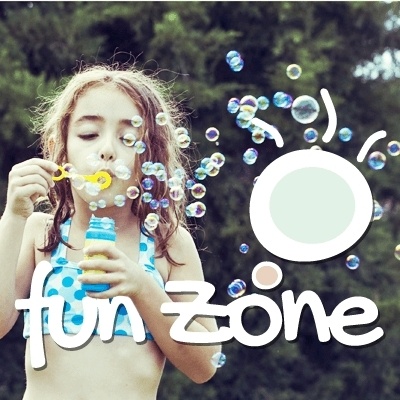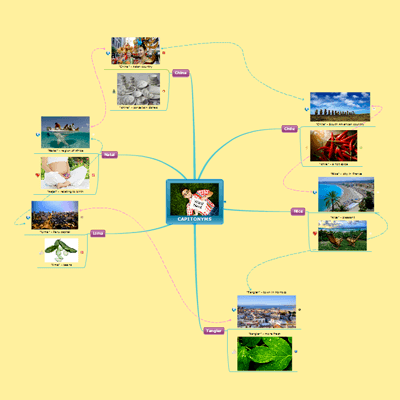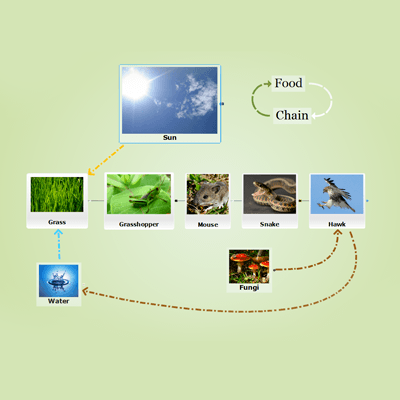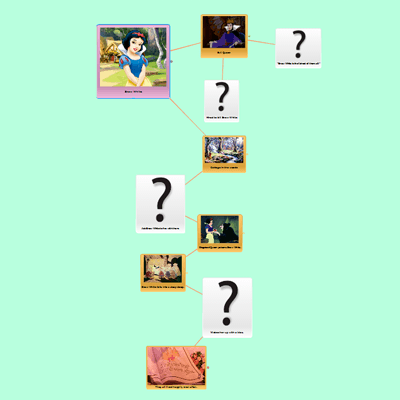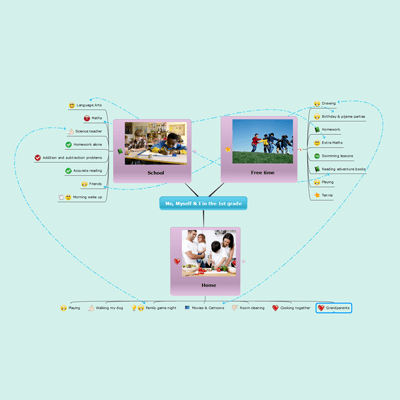How To Develop Kids' Multiple Intelligences with Mind Maps
As a dedicated parent or teacher, you try hard to guide a child into becoming a responsible, highly-educated, easily adaptable, and fulfilled person. There is a general belief with which we agree that all kids who have these particular qualities are intelligent. What we disagree with is the fact that most people see intelligence rather as a static condition; you are either born with it or you are not. Intelligence develops and sharpens with use, just like health and beauty do through workout.
All the story-telling; puzzle activities; classical music even though your child is a few months old; word games; board games; are on your agenda, for many years to come, for a very strong reason: raising kids who believe in their ability to nurture their intelligence, even when they become adults.
Mind mapping won't make brainiacs out of your kids, but it will make them:
- good listeners and speakers;
- rational, problem-solving and imaginative kids;
- excellent self planners and goal-setters.
Here are some fun and creative mind maps that could cater for children's multiple intelligences:
(Click the image to see the mind map)
At the age of 3, toddlers know about 600 words. At 5, they already recognize letters, letter-sound matches, and they start matching spoken words to written ones. By the age of 6, this amazing verbal intelligence process reaches a milestone: kids start reading and writing.
So, together you can indulge in creating funny thesaurus mind maps, mind maps with key elements of their favorite stories, mind maps with lovable expressions from those stories, etc. Benefits?
- Children will soon start to use varied language;
- You will be delighted to see them explaining things in order to convince you;
- Kids will even begin to have a good memory recall for names and dates.
(Click the image to see the mind map)
Mickey Mouse, Walt Disney's most popular cartoon star, says "arithmetic is being able to count up to twenty without taking off your shoes." He is hilarious but also dead right, kids need logical intelligence to handle long chains of numbers and reasoning.
Build engaging mind maps to make children follow sequences and equivalencies. This will later enable them to easily recognize relationships, connections, and patterns far more easily.
(Click the image to see the mind map)
You might be the parent or the teacher of a child that is literally a daydreamer, who seems to neglect the surrounding environment. In fact, this child will notice the world's precious subtleties and details that most of us miss. Kids as such “think in pictures and images”, and are very talented at drawing, doing puzzles and mazes.
Try to create puzzle mind maps:
- Start from kids' favorite cartoons, bedtime or historical stories you've just told them;
- Make them vivid, full of colors and images, to nourish kids' spatial awareness – they are the future artists.
(Click the image to see the mind map)
Especially as a parent, you think you can keep kids safe as long as you know what they do, what they think, whom they are spending time with. It is this inextricable instinct that guides so many of your thoughts and actions. The thing is that children will be safe if you teach them how to be in touch with themselves. You might not know everything about your child and that is OK, but it is vital for his personal development to know as much as he can about himself.
Start creating self analysis mind maps and you will teach your child about:
- Self reflection and asking the big questions;
- The benefit of understanding his strengths and weaknesses; of enjoying the solitude as he puts his thoughts in order.
